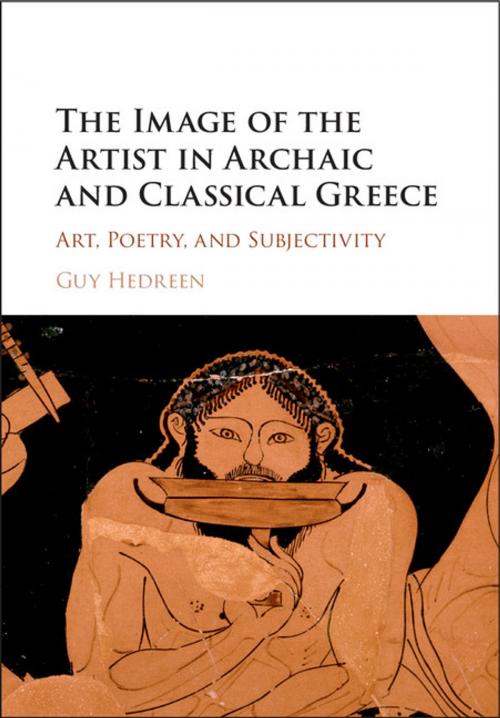The Image of the Artist in Archaic and Classical Greece
Art, Poetry, and Subjectivity
Nonfiction, Art & Architecture, General Art, Criticism, Art History| Author: | Guy Hedreen | ISBN: | 9781316452370 |
| Publisher: | Cambridge University Press | Publication: | November 26, 2015 |
| Imprint: | Cambridge University Press | Language: | English |
| Author: | Guy Hedreen |
| ISBN: | 9781316452370 |
| Publisher: | Cambridge University Press |
| Publication: | November 26, 2015 |
| Imprint: | Cambridge University Press |
| Language: | English |
This book explores the persona of the artist in Archaic and Classical Greek art and literature. Guy Hedreen argues that artistic subjectivity, first expressed in Athenian vase-painting of the sixth century BCE and intensively explored by Euphronios, developed alongside a self-consciously constructed persona of the poet. He explains how poets like Archilochos and Hipponax identified with the wily Homeric character of Odysseus as a prototype of the successful narrator, and how the lame yet resourceful artist-god Hephaistos is emulated by Archaic vase-painters such as Kleitias. In lyric poetry and pictorial art, Hedreen traces a widespread conception of the artist or poet as socially marginal, and sometimes physically imperfect, but rhetorically clever, technically peerless, and a master of fiction. Bringing together in a sustained analysis the roots of subjectivity across media, this book offers a new way of studying the relationship between poetry and art in ancient Greece.
This book explores the persona of the artist in Archaic and Classical Greek art and literature. Guy Hedreen argues that artistic subjectivity, first expressed in Athenian vase-painting of the sixth century BCE and intensively explored by Euphronios, developed alongside a self-consciously constructed persona of the poet. He explains how poets like Archilochos and Hipponax identified with the wily Homeric character of Odysseus as a prototype of the successful narrator, and how the lame yet resourceful artist-god Hephaistos is emulated by Archaic vase-painters such as Kleitias. In lyric poetry and pictorial art, Hedreen traces a widespread conception of the artist or poet as socially marginal, and sometimes physically imperfect, but rhetorically clever, technically peerless, and a master of fiction. Bringing together in a sustained analysis the roots of subjectivity across media, this book offers a new way of studying the relationship between poetry and art in ancient Greece.















